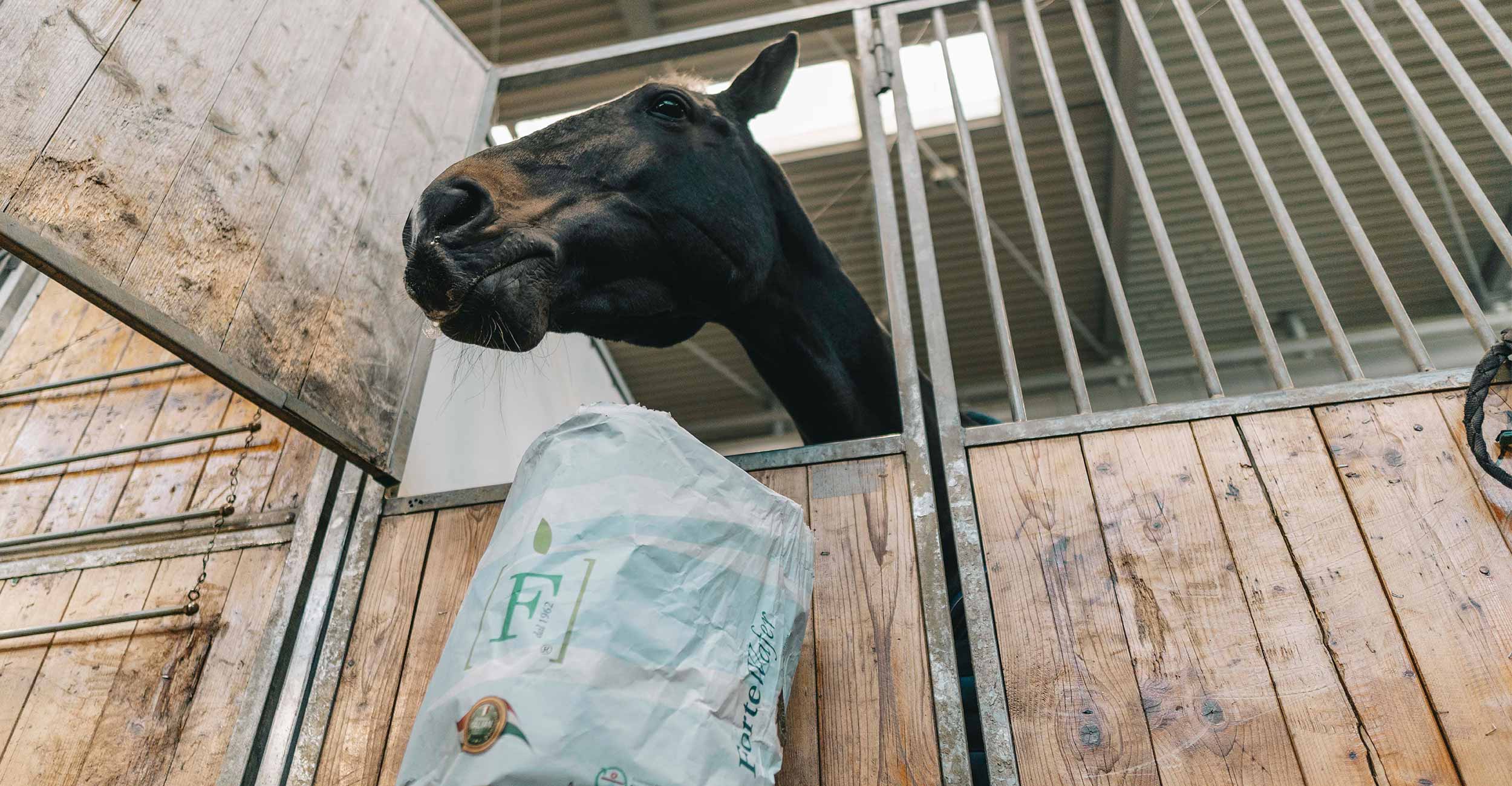Hay is the staple feed for every horse, and its choice impacts not only the animal's health but also its behavior and performance.
This article will explore in depth the different types of hay and formats available, answering common questions and guiding you in purchasing the product best suited to your horse's needs.
What you need to know about hay for horses
Hay is more than just "dry grass." It provides most of the fiber needed in a horse's diet and plays an essential role in digestion and maintaining sound health.
However, not all hay is the same. Quality varies significantly depending on composition, harvesting and storage method, and when it is cut.
Different types of hay and de-dusted hay
De-dusted alfalfa hay
Rich in protein and calcium, alfalfa is great for growing, lactating horses, or those involved in heavy work.
However, excess intake can lead to health problems, so balancing the diet is essential.
Removing dust helps prevent respiratory problems.
Grass hay
This type of hay includes strains such as timothy and oats, which have lower protein content than alfalfa and are, on average, well balanced for most horses.
De-dusted hay
For horses suffering from respiratory sensitivities, de-dusted hay is an excellent choice. Removing dust helps prevent respiratory problems.
Hay for horse: The different formats
Bales
Bales weigh around 700 kg, good for barns and stables, and are the most traditional format.
Pellet
Pellet is a compressed format of hay and/or alfalfa, with a 6 mm diameter, which are convenient for transportation and storage, as they are delivered either in bulk or in 1.000 – 1.100 kg big bags. Therefore, they are a good choice when storage space is limited.
Wafer Cube
Wafer cube is a complementary feed, consisting of dehydrated hay and alfalfa and sugar molasses in a compact and manageable format. They are recommended for ease of feeding and waste reduction.
What is the best hay for horses?
Finding the best hay for horses comes down to understanding the unique nutritional needs of each animal.
A hay made from grasses such as timothy is generally recommended for most horses for its fiber and nutrient balance.
Still, the quality of alfalfa hay deserves special regard. The latter, especially in wafer cube format, is preferable for several reasons.
Wafers cubes are convenient to handle, reduce waste, and contain no dust because the products used are de-dusted.
Absence of dust in hay is a factor, as we saw, that is very important for the horse's respiratory health.
Furthermore, their nutritional density makes them an excellent option for horses with greater energy needs, such as those receiving intensive training or recovering from illness.
Agricole Forte harnesses these properties in products, offering highly digestible and palatable dehydrated alfalfa hay in wafer cube formats that maximize nutritional benefits while maintaining convenience of use.
Agricole Forte products for horses
Agricole Forte is committed to providing high-quality feeding solutions for equines, with products ranging from traditional bales and pellets to modern wafers cubes.
Complementary wafer cubes feeds are designed to meet the needs of modern horses. Each wafer is created to offer an optimal balance of essential nutrients and ease of feeding.
They are ideal for keeping horses in top physical shape and ensuring that their digestive systems remain active and healthy. These products are especially recommended for horses that require a controlled and balanced diet, providing all the benefits of alfalfa without the disadvantages of powder and waste.
Therefore, they are generally suitable for all types of horses that can benefit from alfalfa dietary intake:
- Light activity horses
- Schooling horses
- Growing foals
- Sport horses
- Horses undergoing intense activity and training
Choosing between the various types
Choosing the right hay for your horse involves thoughtfulness and knowledge. With the information provided in this guide, you will certainly be better prepared to make the best choice for your four-legged friend.
For specific advice, our experts are always at your disposal.
Should you have any inquiries or requests for specific information, you can contact us via this form.
